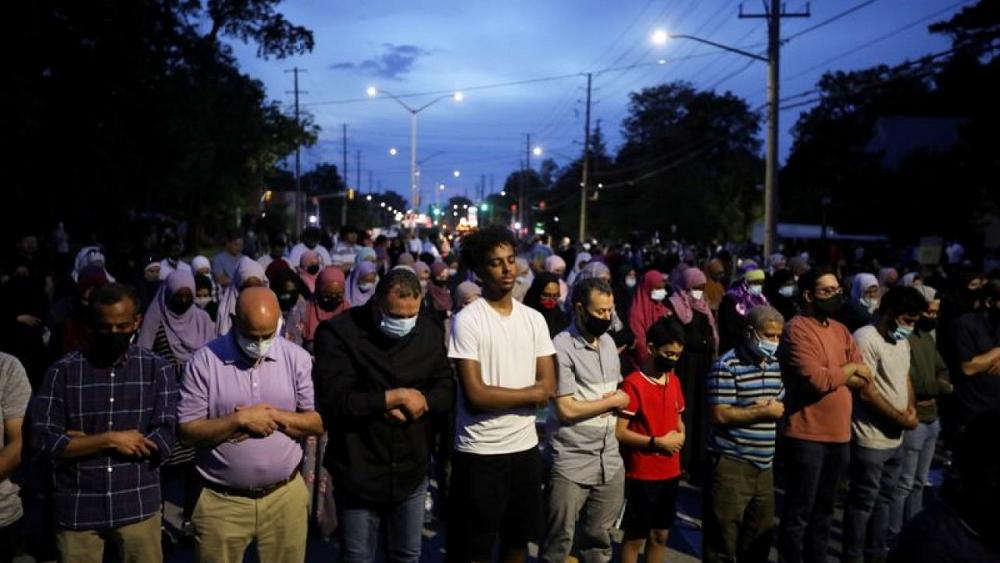By David Ljunggren
OTTAWA -Canada will soon unveil measures to crack down on online extremism following the killing of a Muslim family, a crime that police said was inspired by hate, a government minister said on Wednesday.
Four members of the family were killed on Sunday when a pickup truck jumped the curb and ran them over in London, Ontario, 200 km (124 miles) southwest of Toronto.
“Our government is continuing to do what is necessary, obviously working with the social media platforms, to combat online hate and we’ll have more to say on specific measures in the coming weeks,” Intergovernmental Affairs Minister Dominic LeBlanc told reporters.
There is no evidence that the suspect, Nathaniel Veltman, had any connection to hate groups.
Prime Minister Justin Trudeau, facing complaints from religious and ethnic communities that Ottawa has not done enough to combat bigotry and racism, promised on Tuesday to intensify efforts to fight far-right groups.
“We don’t yet know all the causes or reasons, but there is probably an element of online incitation to violence,” Trudeau told a conference on digital governance on Wednesday.
In January, he asked Heritage Minister Steven Guilbeault to work with Public Safety Minister Bill Blair “to take action on combating hate groups and online hate.” Neither minister’s office was immediately available for comment.
In February, Canada named the far-right Proud Boys a terrorist entity, saying it posed an active security threat.
Stephanie Carvin, an assistant professor and security expert at Ottawa’s Carleton University, said the most likely short-term option was to ban more extremist organizations.
“The problem with targeting these ideologically motivated violent extremist groups is that they just resurface,” she said by phone, calling for policies to target the far-right movement as a whole.
Christian Leuprecht, a politics professor and expert on security and terrorism at the Royal Military College of Canada, noted official data showed hate crimes reported to police fell in 2019 compared to 2018.
Rather than listing groups and broadening the definition of what behavior is acceptable, Canada needs special policy tools to deal with the separate phenomena of hate, violent extremism and extremist violence, Leuprecht said.
“I am concerned that we are creating a very big hammer that conflates all of these … and which might score political points but doesn’t actually treat the problem,” he said in a phone interview.

